Chimpanzee Pan troglodytes
#Chimpanzees are directly threatened by #palmoil. 42% of their range coincides with great #palmoil land. Say no to #deforestation in #Congo #Liberia #Uganda by changing ur shopping habits #Boycottpalmoil #Boycott4Wildlife. Art @kokayart
Tweet
#Chimpanzees once made Congo’s #forest grow. They’re now threatened by #palmoil, 42% of their range is earmarked for #palmoil and #mining #deforestation in #Congo #Liberia #Uganda. Help them survive! #Boycottpalmoil #Boycott4Wildlife
Tweet
Endangered
Extant (resident): Angola; Burundi; Cameroon; Central African Republic; The Democratic Republic of the; Congo Côte d’Ivoire; Equatorial Guinea; Gabon; Ghana; Guinea; Guinea-Bissau; Liberia; Mali; Nigeria; Rwanda; Senegal; Sierra Leone; South Sudan; Tanzania, United Republic of; Uganda
Possibly Extinct: Benin; Burkina Faso; Togo
Chimpanzees have by far the widest geographic distribution of any great ape, with a range of over 2.6 million km²(derived from IUCN shapefiles). Chimpanzees are found discontinuously across the forest belt of Africa, occupying primary and secondary moist lowland forest, swamp forest, submontane and montane forest, dry forest, forest galleries in savanna woodland, and farmland (Oates 2011). In West Africa, Chimpanzees are also found in fallow-agricultural matrixes dominated by wild or feral oil palm (Leciak et al. 2005, Brncic et al. 2010, Sousa et al. 2011).
Chimpanzees are omnivorous and opportunistic feeders. Fruit forms about half the diet, typically supplemented with terrestrial herbaceous vegetation, leaves, stems, seeds, flowers, bark, pith, honey, mushrooms, resin, eggs, and animal prey such as insects and medium-sized mammals. They are the most carnivorous of the great apes. Chimpanzees are also proficient tool users. Tools made from plant parts are used to extract bees, ants and termites from their nests (e.g., Fowler and Sommer 2007), and stone and wooden hammers are used to crack nuts (e.g., Boesch and Boesch 1984, Matsuzawa et al. 2011).
As tropical Asia nears its capacity for oil-palm plantations, Africa has become the new frontier for this crop, which offers excellent economic prospects in countries with appropriate rainfall, soil and temperature conditions (Rival and Lavang 2014). Unfortunately, these areas coincide with good great ape habitat: 42.3% of the African apes’ range is suitable for oil palm (Wich et al. 2014), so the spread of plantations is likely to hit Chimpanzee populations hard in coming years.
IUCN red list
Despite the fact that all killing, capture or consumption of great apes is illegal, poaching is the greatest threat to most Chimpanzees. The second major driver of decline in central Chimpanzee populations is infectious disease, especially Ebola virus disease (EVD).


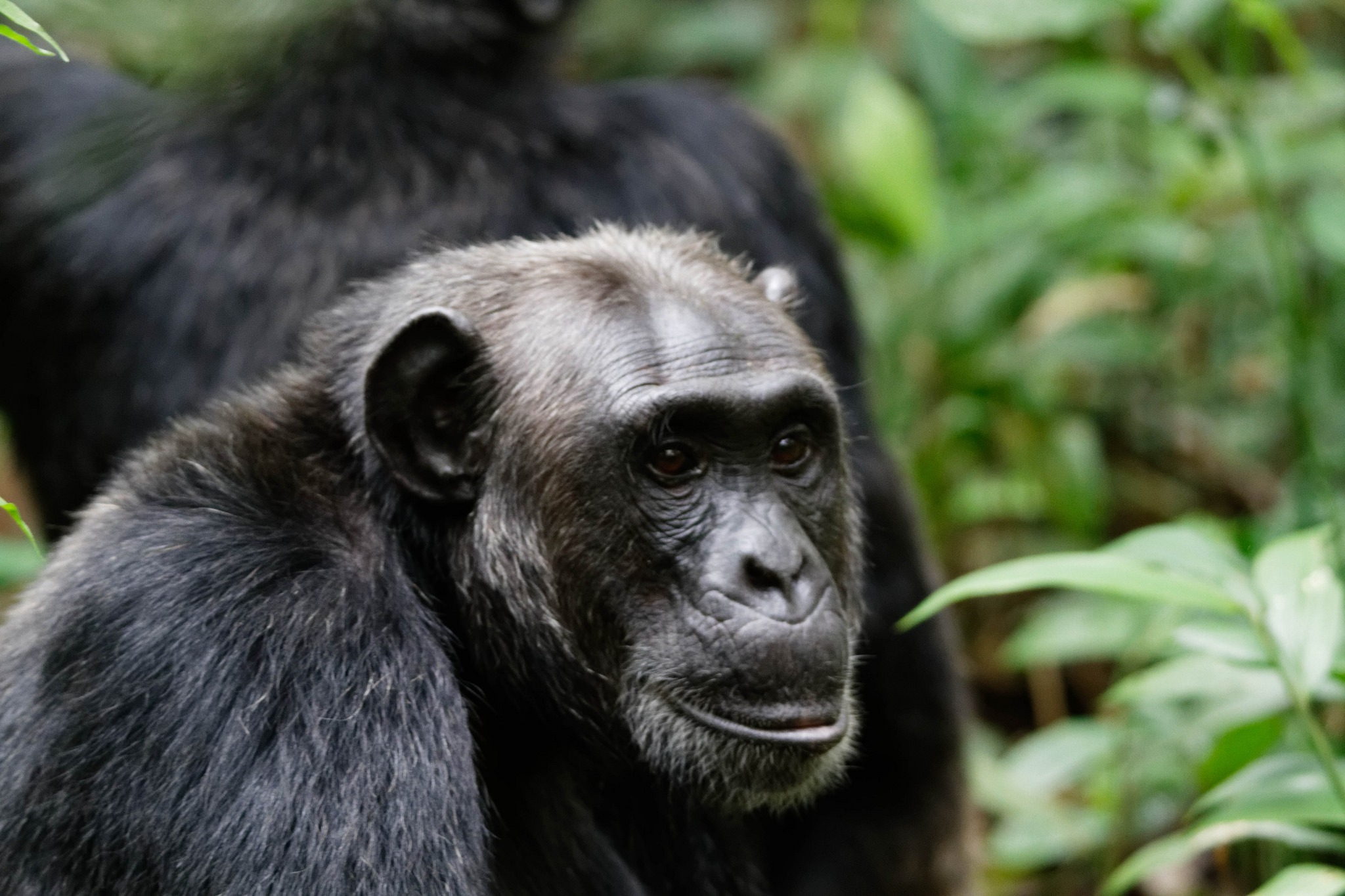
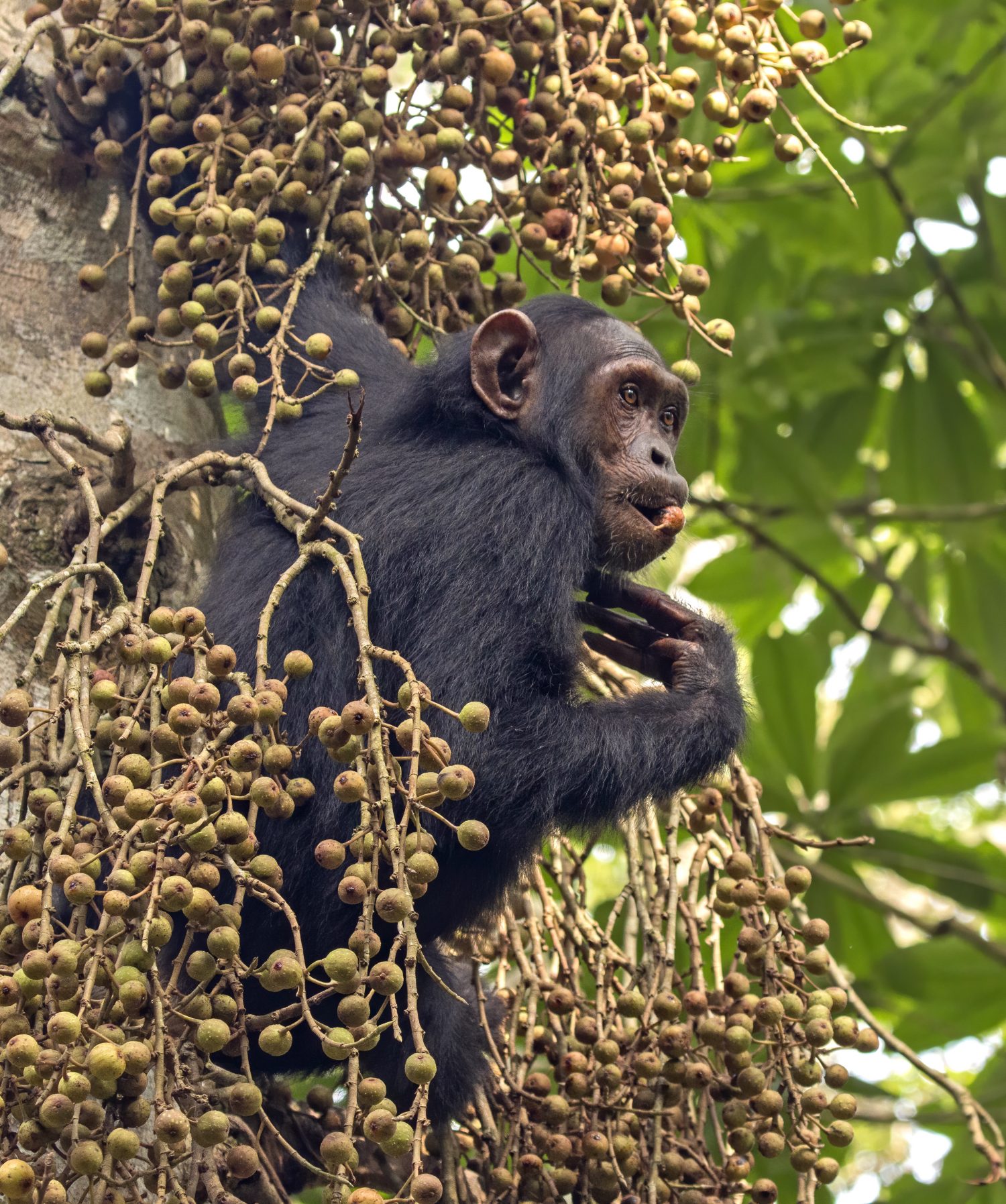
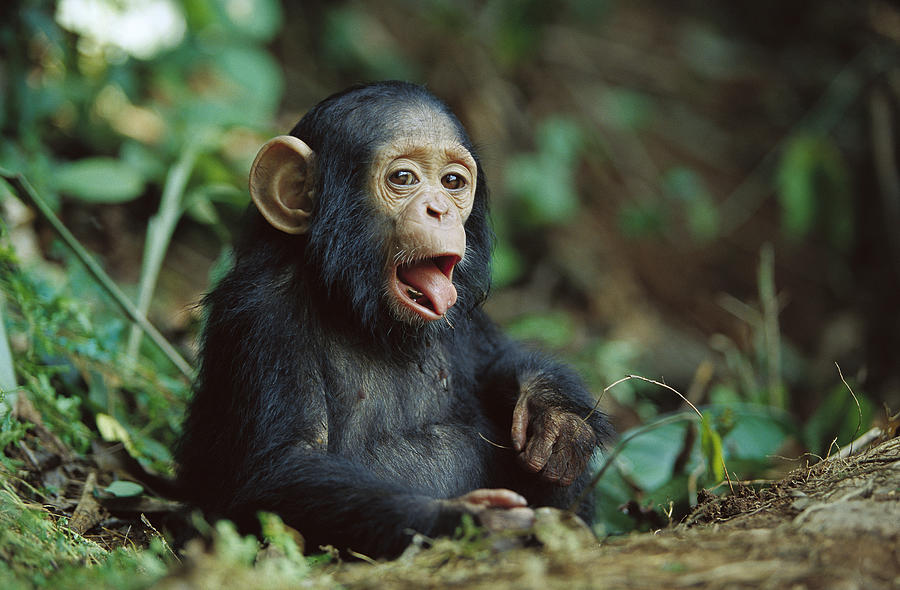
The conversion of forest to farmland across Africa has severely reduced the availability of Chimpanzee habitat. Such habitat loss is especially acute in West Africa, where it is estimated that more than 80% of the region’s original forest cover had been lost by the early 2000s (Kormos et al. 2003).
Effective, coordinated land-use planning is required across the geographic range of chimpanzees to avoid the clearing of large areas of Chimpanzee habitat to establish large-scale agriculture, especially oil-palm plantations (IUCN SSC Primate Specialist Group 2014, Wich et al. 2014, Ruysschaert and Rainer 2015).
IUCN Red list
Chimpanzees have a wide range in Africa but are endangered due to illegal #hunting #palmoil #deforestation and other threats. You can help our primate relatives by changing your shopping habits #Boycott4Wildlife. Art by @kokayart
Tweet
Support the conservation of this species
Africa Conservation Foundation
Jane Goodall Conservation Foundation
Further Information

Humle, T., Maisels, F., Oates, J.F., Plumptre, A. & Williamson, E.A. 2016. Pan troglodytes (errata version published in 2018). The IUCN Red List of Threatened Species 2016: e.T15933A129038584. https://dx.doi.org/10.2305/IUCN.UK.2016-2.RLTS.T15933A17964454.en. Downloaded on 12 March 2021.
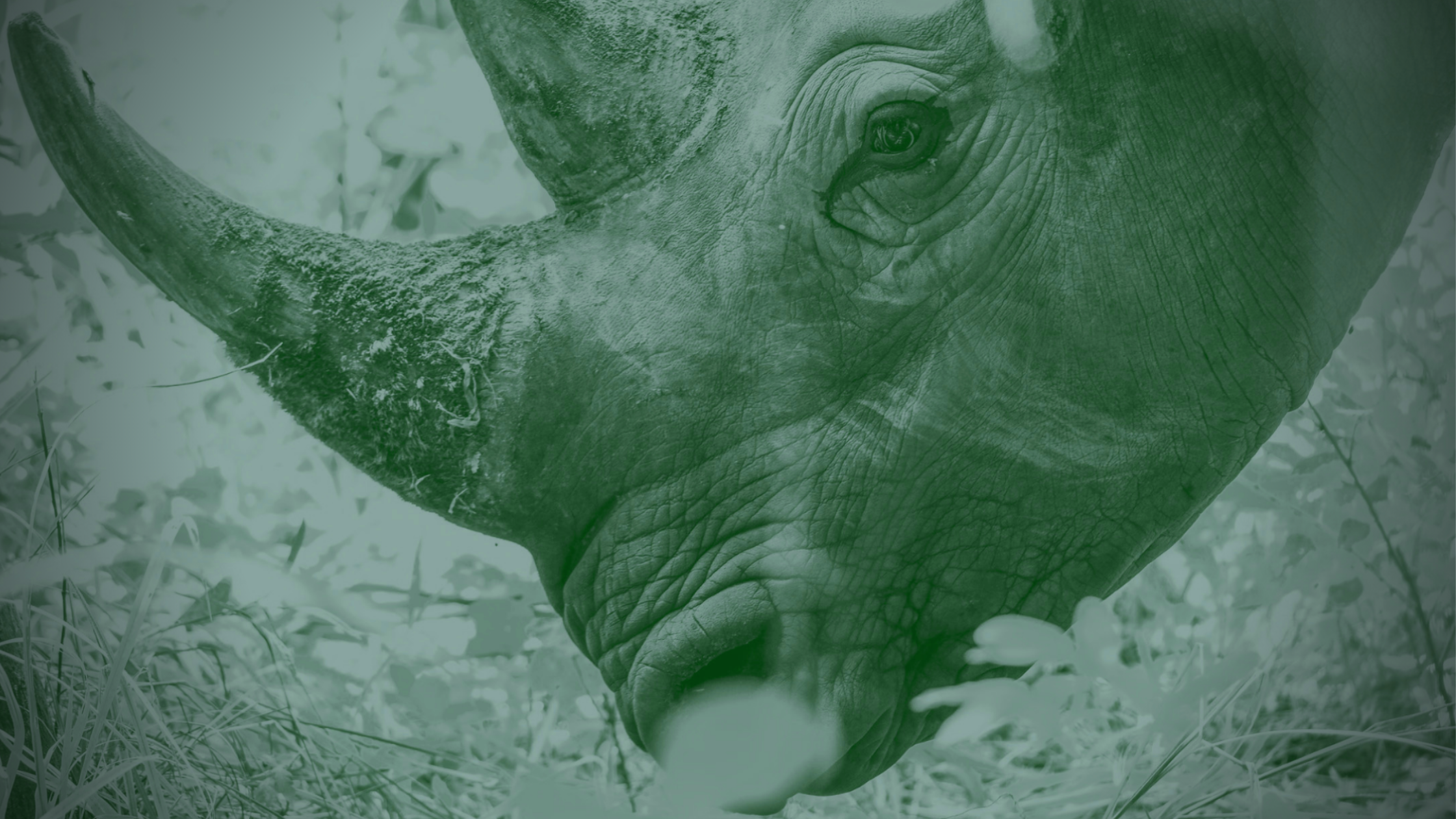
How can I help the #Boycott4Wildlife?
Contribute in five ways
1. Join the #Boycott4Wildlife on social media and subscribe to stay in the loop: Share posts from this website to your own network on Twitter, Mastadon, Instagram, Facebook and Youtube using the hashtags #Boycottpalmoil #Boycott4Wildlife.
2. Contribute stories: Academics, conservationists, scientists, indigenous rights advocates and animal rights advocates working to expose the corruption of the palm oil industry or to save animals can contribute stories to the website.
3. Supermarket sleuthing: Next time you’re in the supermarket, take photos of products containing palm oil. Share these to social media along with the hashtags to call out the greenwashing and ecocide of the brands who use palm oil. You can also take photos of palm oil free products and congratulate brands when they go palm oil free.
4. Take to the streets: Get in touch with Palm Oil Detectives to find out more.
5. Donate: Make a one-off or monthly donation to Palm Oil Detectives as a way of saying thank you and to help pay for ongoing running costs of the website and social media campaigns. Donate here




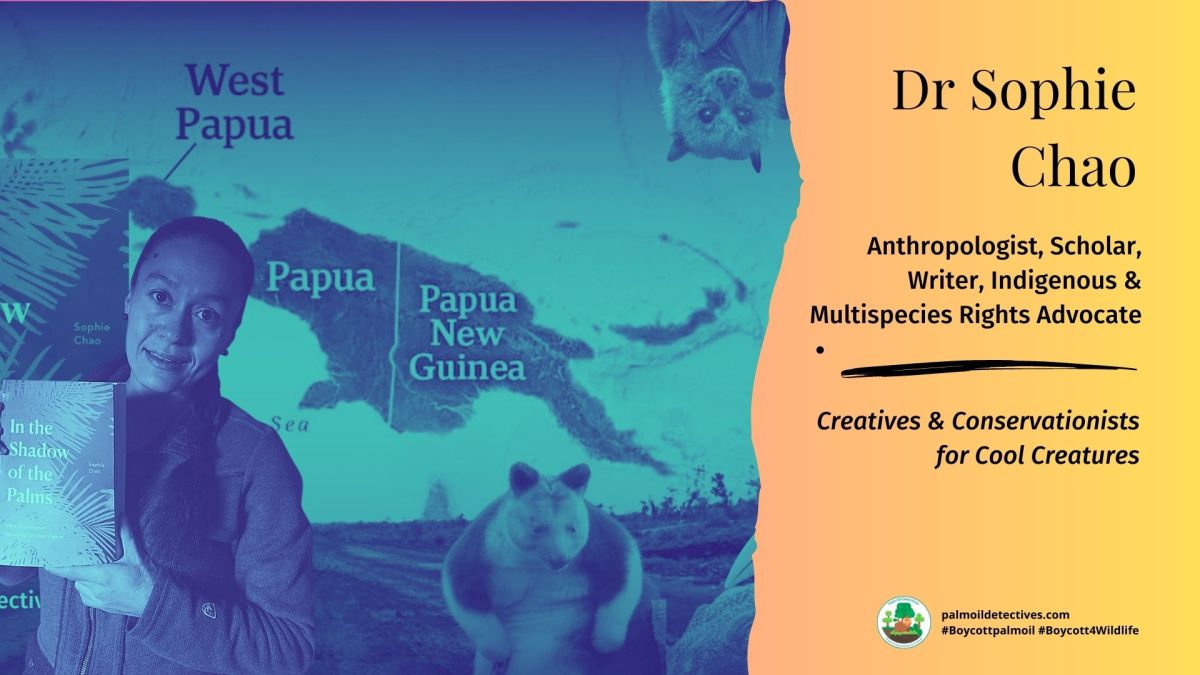



2 thoughts on “Chimpanzee Pan troglodytes”